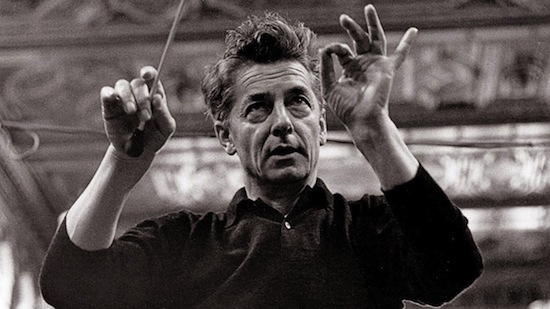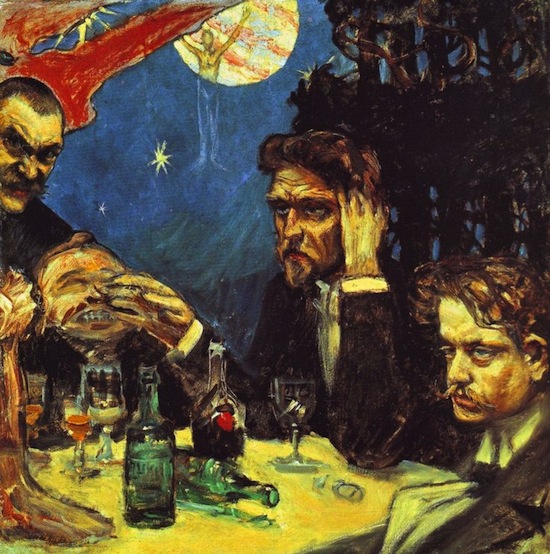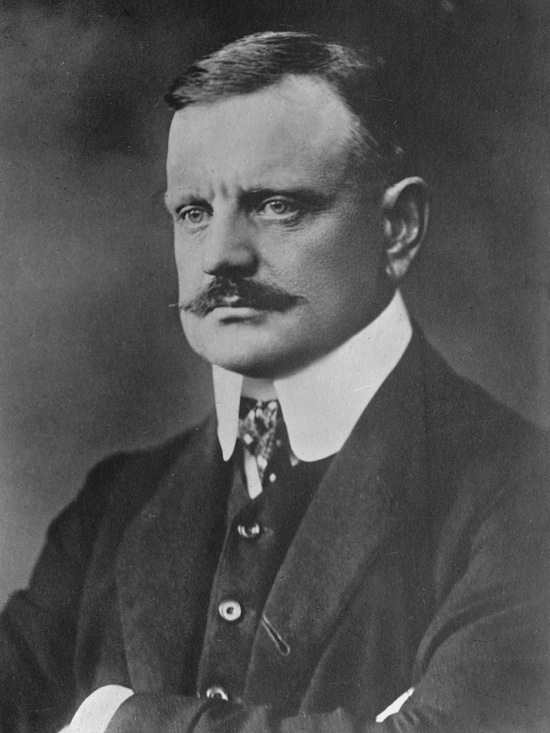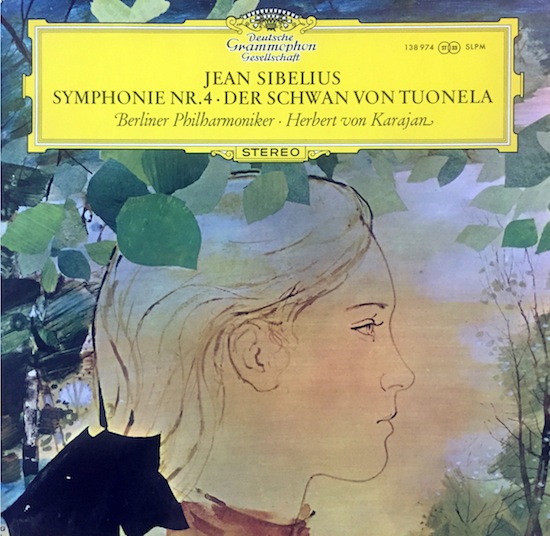This new column takes a simple premise – a report on a single classical record per month, bought in a charity shop, usually for a quid. Over time, bit by bit, a bigger story will hopefully emerge – of music, but mostly people, and not just composers. These £1 records end up telling many great tales, including ones about the huge characters that dominated the classical music industry in the second half of the 20th century – the egomaniac maestros, the ruthless executives, the egghead star performers whose eccentricities and libidos rivalled those of the same era’s rock stars.
The column’s immediate problem is that it will lionise the past (up to the birth of the CD, basically) and classical music is a living, breathing thing. But we all have to start somewhere, and I make no excuses for being a rank amateur discovering this music’s history as I go along. I’m a pop fan who fell for classical just three years ago, but since then my interest has become near-consuming. Records I’ll feature each month will be picked from the hundreds I’ve bought and listened to in that time – ones that, for a myriad of different reasons, melted my mind, or made me sob, or opened doors to worlds that I’ve become so thankful to know about.
It’s a laboured cliché, but music is a language, genre an affectation, and it’s no mistake that one of the best contemporary writers on classical music, New Yorker critic Alex Ross, begins his 2008 book on 20th century music, The Rest Is Noise, with a yarn about a 1928 meeting in Vienna between an American populist, George Gershwin, and an Austrian modernist, Alban Berg. To welcome his famous guest, Berg arranged for a string quartet to perform a new piece of his, Lyric Suite, described by Ross as “Viennese lyricism refined into something like a dangerous narcotic”. It dazzled Gershwin, who hesitated before approaching the piano to play some of his songs. Berg sensed his worry and firmly said: “Mr Gershwin, music is music.”
Amen to that, and although I’ve grown to love Bach, Debussy, Shostakovich and countless others, nothing they wrote gets under my skin in any more profound way than Lou Reed’s ‘Coney Island Baby’, Patsy Cline’s ‘You Belong To Me’, LCD Soundsystem’s ‘Losing My Edge’, or any other of my favourite pop songs. Music is music, and although the following quote from 1940 German composer Kurt Weill brings up the knotty subject of taste, I perfectly understand what he meant: “I don’t give a damn about writing for posterity… I have never acknowledged the difference between ‘serious’ and ‘light’ music. There is good music and bad music.”

Our first record is the brooding and paranoid 1911 fourth symphony by Finnish composer Jean Sibelius, played in 1965 by a top orchestra, the Berlin Philharmonic, conducted by Herbert von Karajan, the astonishingly vain former Nazi party member who became an über-maestro after the war and sold Michael Jackson-like quantities of records (over 200 million, it’s thought, mostly on the Deutsche Grammophon label, as this one is). He’s such a titanic, complex and grotesque figure in the history of the classical music business, I’m going to leave him for now and dedicate a whole column to him later, not least because you’re almost guaranteed to find at least one of his albums in every charity shop across the land. They’re not always good; or rather, many haven’t aged well, leaving them feeling frustratingly cold and stiff.
However, grab anything that couples Karajan with Sibelius (he had an electric bond with the Finn’s music) and especially if you find this majestic performance of the enigmatical fourth symphony. The beginning sounds like the coming of war, and it’s been discussed as somehow foreseeing the carnage that would engulf Europe not long after Sibelius himself conducted the premiere in Helsinki on April 3, 1911. It’s hard, though, to loosely staple world events onto a wildly abstract canvas of music, about 35 minutes in length, that’s murky and coal-eyed but also cut with washes of extraordinary beauty and romance. To get a grip on it, you’d do better to have a poke around Sibelius’s biography, at which point you’ll remember what you already knew – that it’s the most personal things which instil the greatest levels of fear and neurosis in us all.
Sibelius is an entirely recognisable human being in the history of classical music: a man who was caught in a life-long battle with alcoholism, constantly questioned his relevance and potency as an artist, and desperately struggled with having his music – influenced by nature and folk traditions – held up as emblematic of the drive towards Finnish independence, which was finally achieved in 1917, following the Russian Revolution. After that, he became a monument – his nation’s greatest composer – and also a star in America, which seemed to crush his creativity. He produced very little music in the last 30 years of his life (he died in 1957, aged 91), a decline known as The Silence of Järvenpää, in reference to the small town that he moved to with his wife in 1904 to escape a lifestyle in Helsinki that revolved around getting continually shit-faced with his artist friends. A famous 1894 painting by Akseli Gallen-Kallela captures a wasted Sibelius, along with his posse, in the midst of a heavy session. It’s called The Problem.

But he had periods of sobriety, including in his 40s when he was working on his fourth symphony. Nonetheless, he was broke and in fear for his life. A smoker as well as a drinker, he’d had a cancerous tumour removed from his throat in Berlin in 1908, after which he became obsessed with the thought of it returning. As such, as Alex Ross writes in The Rest Is Noise, “The narrative of the fourth is circular rather than linear; it keeps revisiting the same unresolved conflicts.” The atmosphere it creates is intense and it plays blackly funny musical jokes – threatening in its third movement to burst into the ecstasy of the famous prelude from Wagner’s opera Tristan Und Isolde before gliding back into its own claustrophobic fog. At a time when Jung and Freud’s work was causing ripples across Europe, Sibelius called it his “psychological symphony” and, later in life, he simply quoted Swedish writer August Strindberg when asked about it: “One feels pity for human beings.”
I can pinpoint the exact moment – to the hour – when the penny dropped for me on classical music and it happened after doing a job for this site. In April 2014, I travelled to Billy Childish’s house in Kent to gather enough material for tQ to run three pieces on the great artist throughout Easter Monday – a ‘Billy Holiday’, as we called it. Childish told me that, in protest at how available music had become, or perhaps because it was just a fun thing to do, he’d made a bunch of toy wooden boats and sent them out to sea with copies of his new 7" acting as rudders. He said there was a pinhole camera video he’d made of the launch and I should watch it when I got home.
The music Billy used to soundtrack his silent film was the exact recording of Sibelius’s fourth symphony discussed here and I only know that because I Shazamed my computer speakers. And that was it, literally. The opening made me think of Sunn O)))’s terrific Monoliths & Dimensions album from 2009, a gate opened and I felt this overpowering need to hear more classical music and know more about it.
I understand now that falling in love with classical music in 2014 was connected to other things going on in my life. For almost a decade before that, I’d run a pop music newspaper called The Stool Pigeon, sharing an office with tQ for much of that time. We closed ourselves down in February 2013 and it had a predictable effect on me. Suddenly not having to know about the fortunes of every smacky indie band in East London and beyond was freeing, but it also left a void. And I didn’t realise how deeply entrenched nearly all aspects of my life had become with what I did for work. To other people, and also myself, I was the bloke who did The Stool Pigeon with his mental designer mate Mickey. And if I now wasn’t that guy…
For all the silly jokes, lewd comics and tosh we printed in The Stool Pigeon, it offered an intellectual challenge that I instantly missed. I think I looked to classical music because it was something completely new to me and to help find a kind of gravitas again. Throughout summer 2014, I’d skin up in Hyde Park, buy a £5 ticket for the Proms, head up to the gallery to lie on the floor and space out to alien sounds. I began furiously buying £1 records in charity shops and chasing leads on the liner notes for other stuff to investigate. On YouTube, I listened to Neville Marriner’s Academy of St Martin in the Fields playing Bach’s Art Of The Fugue and had something resembling a psychedelic experience. I realised I didn’t hate Vivaldi’s Four Seasons.

Karajan’s 1965 album of Sibelius’s fourth symphony (he recorded it on two other occasions in 1953 and 1976) is not a rare or expensive record, and of course you don’t have to find it on vinyl to hear it. I’d listened to it countless times online before eventually spying a copy in the Oxfam in Putney, south-west London, and I’ve found others since. I give them to friends as presents – just like Bowie used to hand out copies of Austrian soprano Gundula Janowitz singing Richard Strauss’s Four Last Songs, also played the Berlin Philharmonic and conducted by Karajan, coincidentally – and I still listen to it regularly, in awe of how relevant it manages to sound today. And I mean right now – in 2017, with all that’s going on.
There’s some irony to that; of Sibelius’s many insecurities, one that was he would be laughed out of history for not embracing the atonal musical language of modernism and aping contemporaries like Schoenberg and Stravinsky. Like so many others who were given flak for being behind the times – from Bach to Brahms to Rachmaninov – he was right to stand his ground, and he’s now considered to be much more of a progressive than he was given credit for in his lifetime. I get that – to my ears, so much of Sibelius’s music has a universal honesty that prevents it from feeling nailed down, and I’ll forever thank him for starting me off on a journey that we’ll continue next month with a tale of syphilis, demonic leanness in music and a terrifying documentary about a vicious French serial killer.


